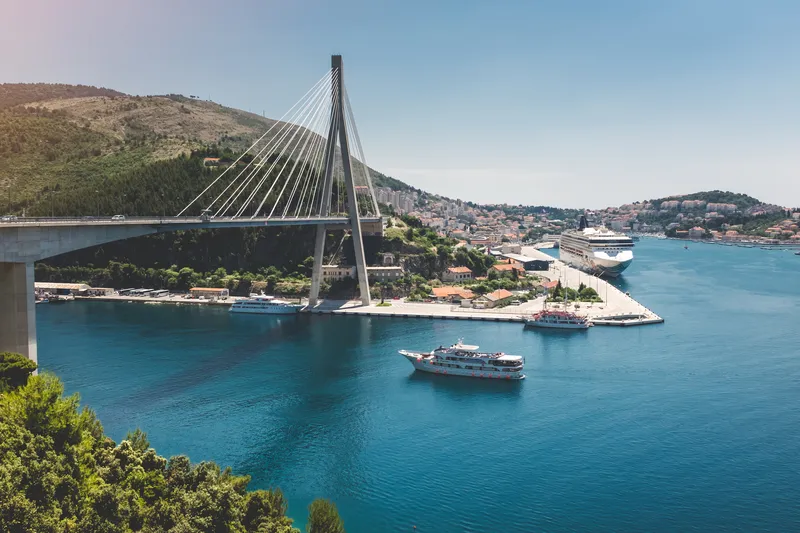
Due to its privileged geographical position, Croatia represents a key crossroads in the connectivity of the South East Europe region, securing a critical role as a gateway for international trade routes between East and West.
Over the past decade the region has made great strides in its political transformation and integration into the global economy, with GDP growing by 40% since 2004. Croatia has also secured a role as a critical gateway for international commerce between the European Union and East Asia, being at the core of its development through regional cooperation initiatives such as the Adriatic-Ionian motorway corridor.
This phase has accompanied a rapprochement with European policies and infrastructure planning, notably in the transport sector, perceived as an essential enabler of the region’s competitiveness objectives. An important milestone was reached in 2015 with the extension of the TEN-T Core Network to the Western Balkans, triggering additional investments for the connectivity program.
New treaties establishing a transport community for the Western Balkans are expected to give rise to enhanced coordination mechanisms across the region’s transport policies and plans and unleash further investment programmes.
At a time of growing motorisation, the region’s network of roads and highways is currently its largest public asset. However, significant challenges remain to enhance the safety, efficiency, environmental sustainability and resilience of the road network, underscoring the value of regional and programmatic cooperation around highway and sustainable mobility initiatives.
Transport ministries and highway agencies in South East Europe are already actively collaborating on reform processes to address key horizontal challenges and support integration. These include adopting common standards, improving regional interconnections to remove transit bottlenecks, optimising the use of existing assets and reducing traffic injuries responsible for at least 1,500 deaths annually.
Several regional initiatives have been successfully deployed in the South East Europe region under Croatian leadership as:
• Adriatic-Ionian motorway: when completed, will further enable trade, both within and beyond the region;
• EU-funded CROCODILE project: a trans-national platform to collect, exchange and analyse road user data to offer services and improvements for road users in Central and Eastern Europe;
• Three Seas Initiative: a high-level platform to secure political support and decisive action on cross-border and macro-regional projects of strategic importance to Central and Eastern Europe.
The role of the National Road Associations of South East Europe is essential, as they can strongly contribute to a more integrated approach of the road transport policies by ensuring a better communication between private and public sectors. The private sector can make an important contribution toward achieving these objectives. But its role often remains constrained by the absence of a supportive engagement framework.
In this respect, a partnership between leading regional, European and international road organisations are offering a three-day event to deepen understanding of the challenges, widen the engagement framework between regional and European road stakeholders and achieve consensus on key policy, investment and planning measures.
The European Road Conference has three major themes:
• Transport and mobility: topics include funding and maintaining transport infrastructure and assets;
• Road engineering: covers material, sustainable roads and innovations in roads, bridges and tunnels;
• Safer roads: road safety policies and programmes, data collection and diagnosis as well as safer road design.
Participants will also benefit from a technical visit to the Franjo Tuđman Bridge near Dubrovnik. A 225m² exhibition area offers companies the opportunity to highlight their presence in the region.
For the first time in Europe, a special session on traffic signs and pavement markings, co-sponsored by TRB - Transport Research Board - will take place on day one of the conference.
The European Road Conference is a unique opportunity for all major road stakeholders, from both private and public sectors, to present new developments and solutions in terms of road safety, mobility, financing and management, to exchange and share experiences and to take further steps towards a more integrated road policy in South East Europe.








